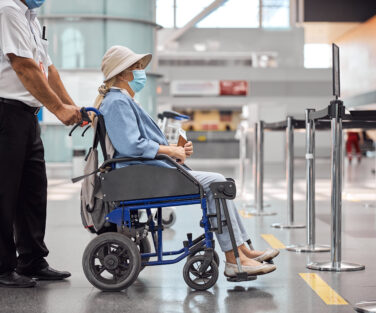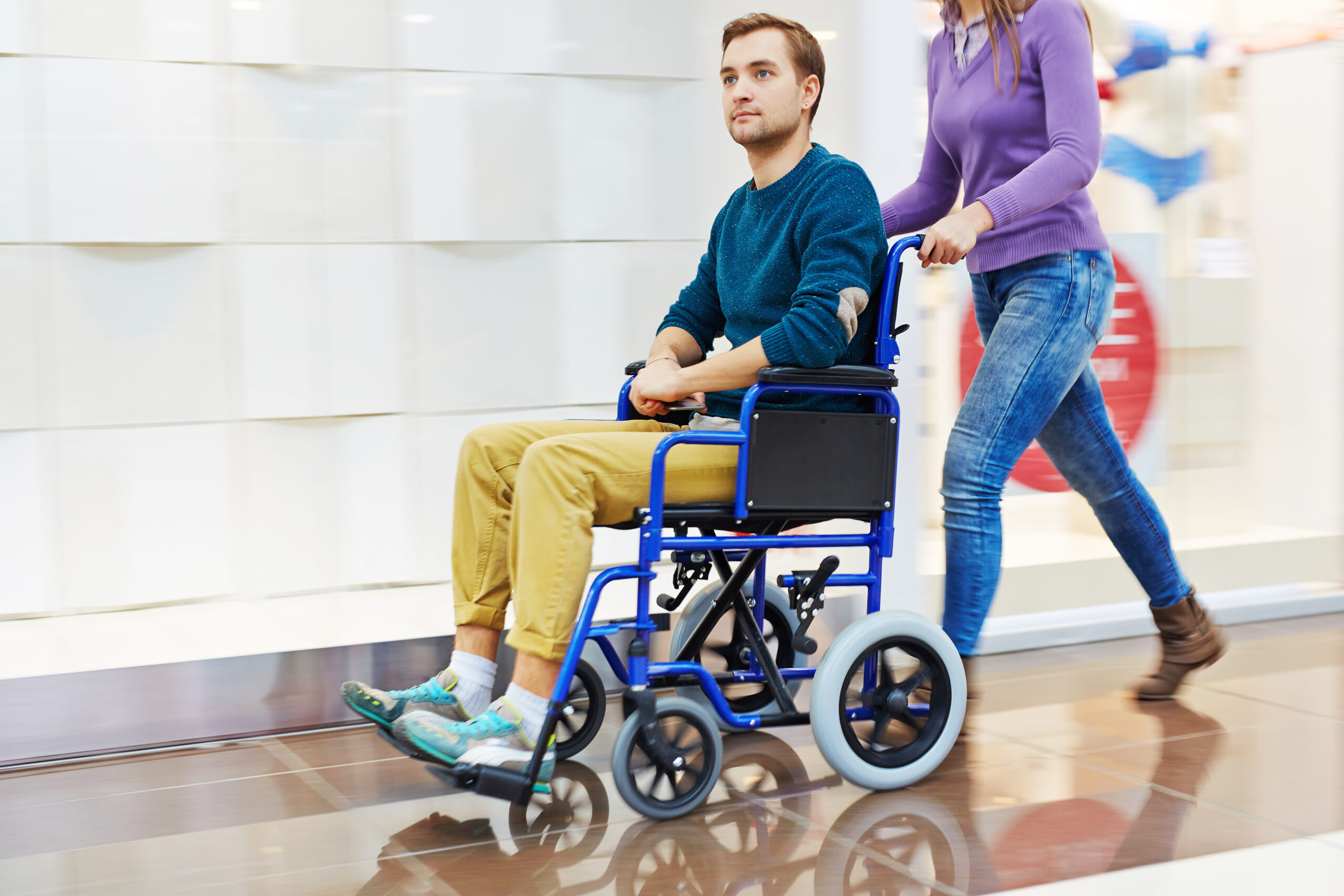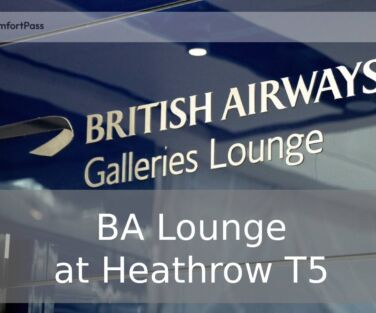
Types of Airport Assistance Available
Passengers with disabilities should always do some research before booking an air ticket, as accessibility is very important and may determine the whole travel experience.
It’s best to contact the airline to know which assistance services they offer, as each has a different policy. Airlines may have special check-in and security procedures, transfer to the gate, and help with boarding the aircraft and getting seated.
Special assistance may also include wheelchair services, guided assistance for visually impaired travelers, support for passengers with hearing impairments, help with luggage and mobility aids, and special seating arrangements, among others.
When and How to Request Assistance
If you require extra care during airport procedures, you need to contact your airline by telephone, via the official website, or during the booking.
It is recommended to make a request at least 48 hours before departure: this way, you will be provided with the highest level of services; however, you will get some kind of assistance even if you book later than this.
To receive appropriate support, you need to state clearly what help you need. Also, inform on your condition and whether you have assistive devices. It’s important to tell the measurements of your device and ask if there are onboard devices available on all aircraft.
Airport Arrival and Check-in Facilities
Before travel, you should check the plan of the airport to determine the points at which people with disabilities can seek assistance. At the terminal, you should go to the designated point or to the check-in stands. If it is not allowed to park next to the terminal, you have to stop at the nearest parking lot.
At the time of check-in, confirm previously made notification of assistance. Air carriers are required to transport no more than two pieces of mobility equipment per person with reduced mobility or disabled person, including electric mobility aid.
Security check is carried out, considering the degree and type of your disability. If you are not able to walk, you will be subject to a hand, perhaps with a hand-held metal detector, or will be asked to go to a separate room. Your equipment will be checked manually or by X-rays. Security searches are also safe for travelers with medical implants and pacemakers.
Boarding and In-Flight Assistance for the Disabled
Passengers with disabilities or reduced mobility are usually seated on board the aircraft first. If you are not able to climb stairs, you will receive help, depending on the situation and the equipment available at the airport. Keep in mind that the staff at the airport or at an aircraft may need clarification or guidance on how to use your equipment to provide the best assistance.
On board, wheelchairs are usually transported in the hold. If you use one equipped with rechargeable batteries, you must make sure they are “dry batteries” and transportable without any additional restrictions. Newer planes meet the needs of disabled people better: they have signage, accessible toilets, lighting, and special equipment.
If the seats are selected during the check-in, staff should find the most comfortable seat, for example, with a movable armrest or more legroom, that will enable you to move freely. The carriage of guide dogs is placed in the cabin of the aircraft without extra charge. A larger assistance dog can travel sitting on the floor, while the smaller one may sit on its owner’s lap.
Connecting Flights and Arrival Assistance
Disabled passengers are the last to leave the passenger cabin, so you should inform the staff about the need to leave the deck faster, if necessary, because of your next flight. Your mobility equipment will be usually available immediately after landing. If it is damaged, the airport operator is obliged to provide replacement equipment.
The airport staff will assist you in relocating from the aircraft to the baggage hall. You will also get help with baggage reclaim and completion of the procedures for arrival, such as immigration and customs, and assistance in transfer between gates for connecting flights.

Tips for a Smooth Travel Experience
To ensure smooth travels as a person with reduced mobility or hidden disabilities, follow these tips:
- Carry all proper documentation, including medical certificates.
- If traveling with mobility aids, pack them carefully to prevent damage.
- Convey your requests clearly to the airline and airport staff.
- Allow additional time for procedures and transfers, and be ready to experience delays.
Technology and Accessibility Features in Airports
Many airports are equipped with accessible information displays and audio announcements to assist disabled travelers in navigating through terminals in an easier way.
Moreover, navigation apps and special tools can also help make the trip more convenient. For example, you can use Transreport’s Passenger Assistance app, which is an accessibility assistance booking platform.
FAQ
How early should I arrive at the airport if I’ve requested assistance?
If you require assistance, you should arrive at the airport no less than 2 hours before your flight. This extra time is needed for help with check-in, security, and boarding.
Can I bring my own mobility aid or wheelchair to the gate?
You can stay in your own wheelchair or mobility aid until you get to the gate – there, it will be taken from you. Those who cannot walk will be transported to their aircraft seat in an aisle chair. Upon reaching the destination, the mobility aid will be returned.
What if my mobility aid is damaged during the flight?
You have to file a damage report immediately at the airport’s baggage office. An airline is responsible to completely cover repair or replacement costs for a damaged mobility aid. It must also provide a loaner.
Are emotional support animals allowed as part of disability assistance?
Policies vary between airlines, but many allow emotional support animals, provided they have proper documentation. It would help if the animal is an official service animal and trained as a psychiatric animal.
How do I request special meals for dietary restrictions related to my disability?
If you need special meals, you can request them when booking your flight or by contacting the airline at least 48 hours in advance.

